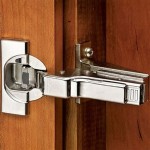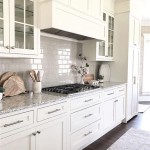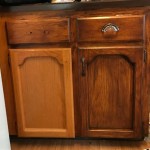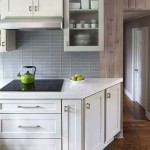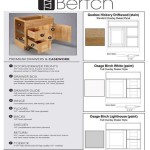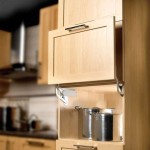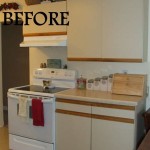How To Clean Modular Kitchen Doors
Modular kitchen doors, with their sleek and modern aesthetic, are a popular choice in contemporary homes. Maintaining their pristine appearance, however, requires regular cleaning. This guide outlines effective methods for cleaning various types of modular kitchen doors, ensuring their longevity and visual appeal.
Before embarking on the cleaning process, it is crucial to identify the material of the kitchen doors. Different materials require specific cleaning agents and techniques to prevent damage. Common materials include laminate, wood, lacquered wood, and membrane.
Cleaning Laminate Kitchen Doors: Laminate is a durable and relatively low-maintenance material. Regular cleaning involves wiping down the doors with a soft, damp cloth and a mild dish soap solution. Avoid abrasive cleaners and scouring pads, as these can scratch the laminate surface. For stubborn stains, a paste of baking soda and water can be applied and gently rubbed in a circular motion. Rinse thoroughly with clean water and dry with a soft cloth to prevent watermarks.
Cleaning Wooden Kitchen Doors: Solid wood kitchen doors require more specialized care. Dusting regularly with a soft cloth is recommended. For cleaning, a solution of warm water and a mild wood cleaner, specifically designed for kitchen cabinets, should be used. Avoid excessive water, as it can warp the wood. Apply the solution with a soft cloth, working in the direction of the wood grain. Dry immediately with a clean, dry cloth. Periodically, wood kitchen doors benefit from polishing with a wood-specific polish to maintain their luster.
Cleaning Lacquered Wood Kitchen Doors: Lacquered wood doors have a protective coating that provides a high-gloss finish. While this coating offers durability, it is susceptible to scratches. Avoid abrasive cleaners and scouring pads. A soft, damp microfiber cloth is generally sufficient for daily cleaning. For more stubborn marks, a solution of warm water and a pH-neutral cleaner can be used. Apply sparingly and dry immediately to prevent water spots. Avoid using excessive force when cleaning, as this can damage the lacquer.
Cleaning Membrane Kitchen Doors: Membrane kitchen doors are constructed with a thin PVC foil wrapped over medium-density fiberboard (MDF). This creates a seamless, moisture-resistant surface. Cleaning membrane doors is similar to cleaning laminate doors. A soft cloth dampened with a mild dish soap solution is typically sufficient. Avoid harsh chemicals and abrasive cleaners, as these can damage the PVC foil. For stubborn stains, a paste of baking soda and water can be gently applied and rubbed. Rinse with clean water and dry thoroughly.
Handling Grease and Grime: Kitchen doors, particularly those near the stovetop, are prone to accumulating grease and grime. A specialized degreaser, specifically designed for kitchen use, can be employed for effective removal. Follow the manufacturer's instructions for dilution and application. Always test the degreaser on an inconspicuous area first to ensure compatibility with the door material. After applying the degreaser, rinse thoroughly with clean water and dry immediately.
Maintaining Hardware: Handles, knobs, and hinges also require regular cleaning. Remove loose dirt and grime with a soft brush. For more thorough cleaning, these hardware components can be removed and washed with warm soapy water. Dry completely before reattaching to prevent rust or corrosion. For stubborn residue, a solution of white vinegar and water can be effective.
Preventing Damage: Regular cleaning and preventative measures can significantly extend the lifespan of modular kitchen doors. Avoid placing hot items directly on the doors, as this can cause damage. Clean up spills immediately to prevent staining and warping. Avoid using excessive force when cleaning, as this can scratch or damage the surface. By following these guidelines, modular kitchen doors can maintain their beauty and functionality for years to come.
Specialized Cleaning Products: While homemade cleaning solutions are often sufficient, specialized cleaning products designed for specific kitchen door materials are available. These products are formulated to clean effectively without causing damage. When selecting a specialized cleaner, ensure it is compatible with the material of your kitchen doors. Always follow the manufacturer's instructions for application and dilution.
Frequency of Cleaning: The frequency of cleaning depends on usage and the surrounding environment. High-traffic kitchens may require more frequent cleaning than those used less often. As a general rule, wiping down kitchen doors with a damp cloth daily or every other day can help prevent the buildup of grease and grime. More thorough cleaning, involving washing with a cleaning solution, can be done weekly or bi-weekly.
Importance of Ventilation: Proper ventilation is essential when cleaning kitchen doors, especially when using cleaning solutions. Open windows and doors to ensure adequate airflow. This helps dissipate fumes from cleaning products and prevents the buildup of moisture, which can damage certain materials.

Modular Kitchen Cleaning Solutions Simple Tips

Ways To Clean Your Dirty Modular Kitchen Design Cafe

How To Clean Kitchen Cabinates Door Modular

How To Clean Kitchen Cabinets Cupboard Cleaning Doors

How To Clean Modular Kitchen Racks And Doors Artlies
How To Maintain Your Modular Kitchen In 12 Easy Ways

How To Clean Kitchen Cabinates Door Modular

Tips To Maintain Modular Kitchens

Ways To Clean Your Dirty Modular Kitchen Design Cafe

How To Clean Kitchen Cabinet Hardware Pro Tips For Wooden Cabinets
Related Posts

